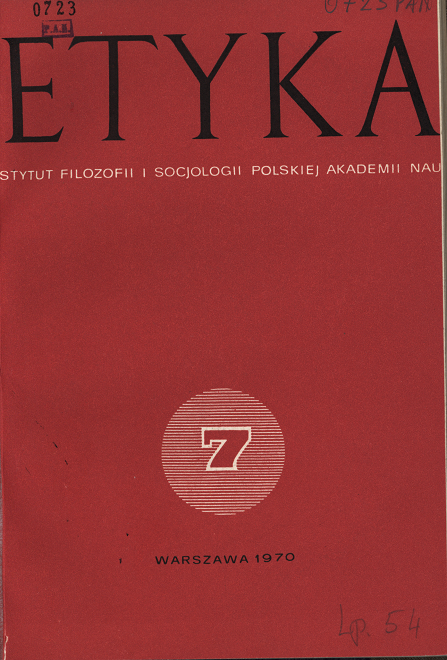Problemy i kierunki rozwoju współczesnej etyki radzieckiej
DOI:
https://doi.org/10.14394/etyka.590Abstract
The sixth decade of this century may be considered a period of dynamic development of the Soviet ethics. In contrast with the post-revolutionary period, the ethics does not limit itself to a normative reflection, but starts also extensive studies in the theory of ethics. According to the authors of the present article, there are all reasons to believe that the marxist ethics will become a scientific discipline in a full sense of the word. The purpose of the article is not to discuss all problems involved in the contemporary Soviet ethics, but above all to outline main problems and trends of its development. The authors distinguish following aspects of the ethical investigations: philosophical, sociological, social-psychological, axiological, pedagogical, historical, gnoseological, logical, and metaethical. Together with a critical evaluation of solutions of certain problems, they criticize some abstractive and ahistorical, in their opinion, approach to ethics which has been manifested above all in works of Y. A. Milner-Irinin and P. M. Egides.Downloads
Downloads
Published
How to Cite
Issue
Section
License
Works published in ETYKA are available under the Creative Commons Attribution 4.0 International Licence (CC BY 4.0), which entails acknowledgement of authorship. Under this licence, Authors keep their copyrights and agree that their works can be used again legally for any purpose, including commercial ones, without the need to obtain previous consent of the Author or publisher. The articles can be downloaded, printed, copied and disseminated; under the condition that the authorship is indicated accordingly, together with the place of original publication. The Authors preserve their copyrights to the above-mentioned works without any limitation whatsoever.



